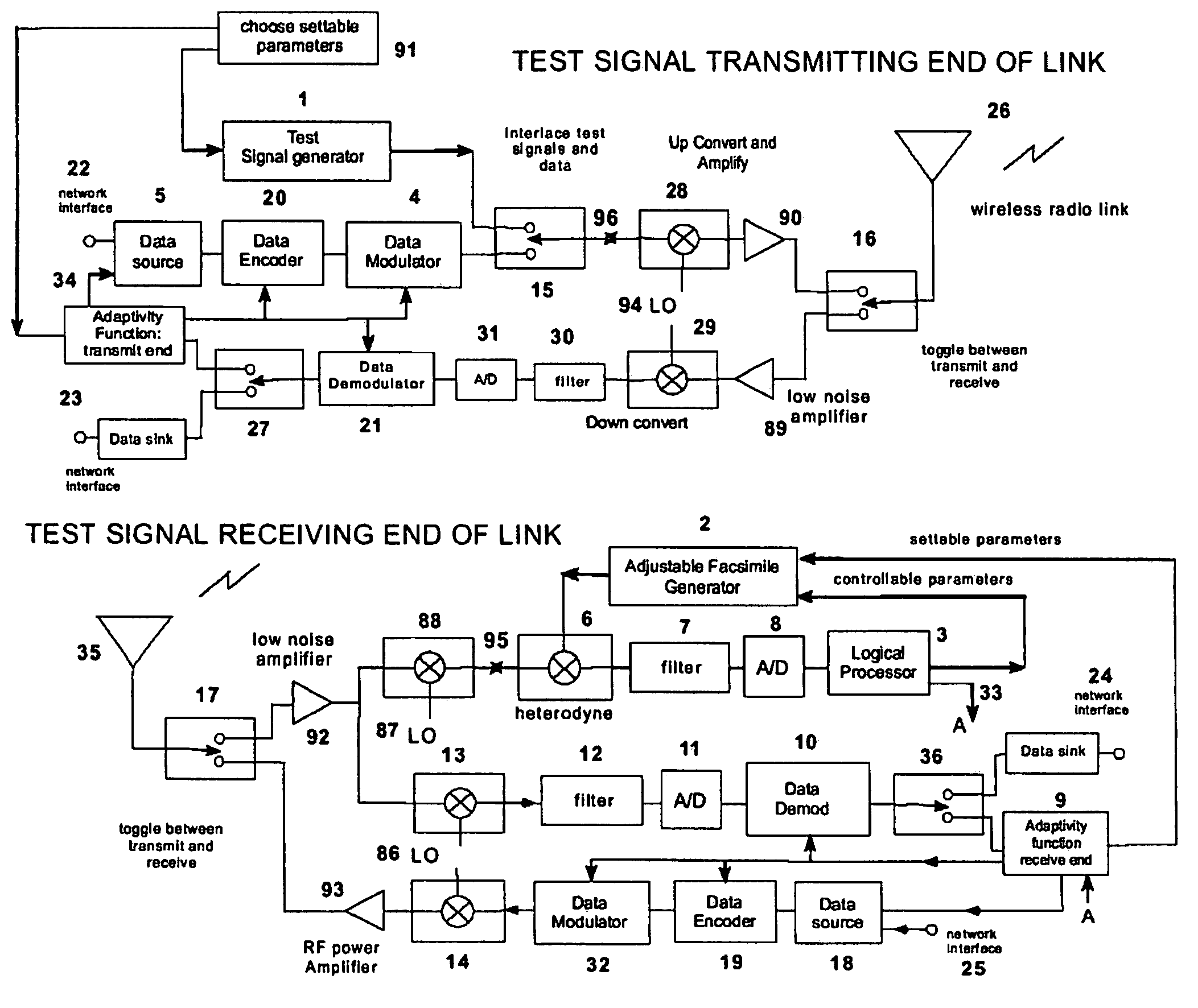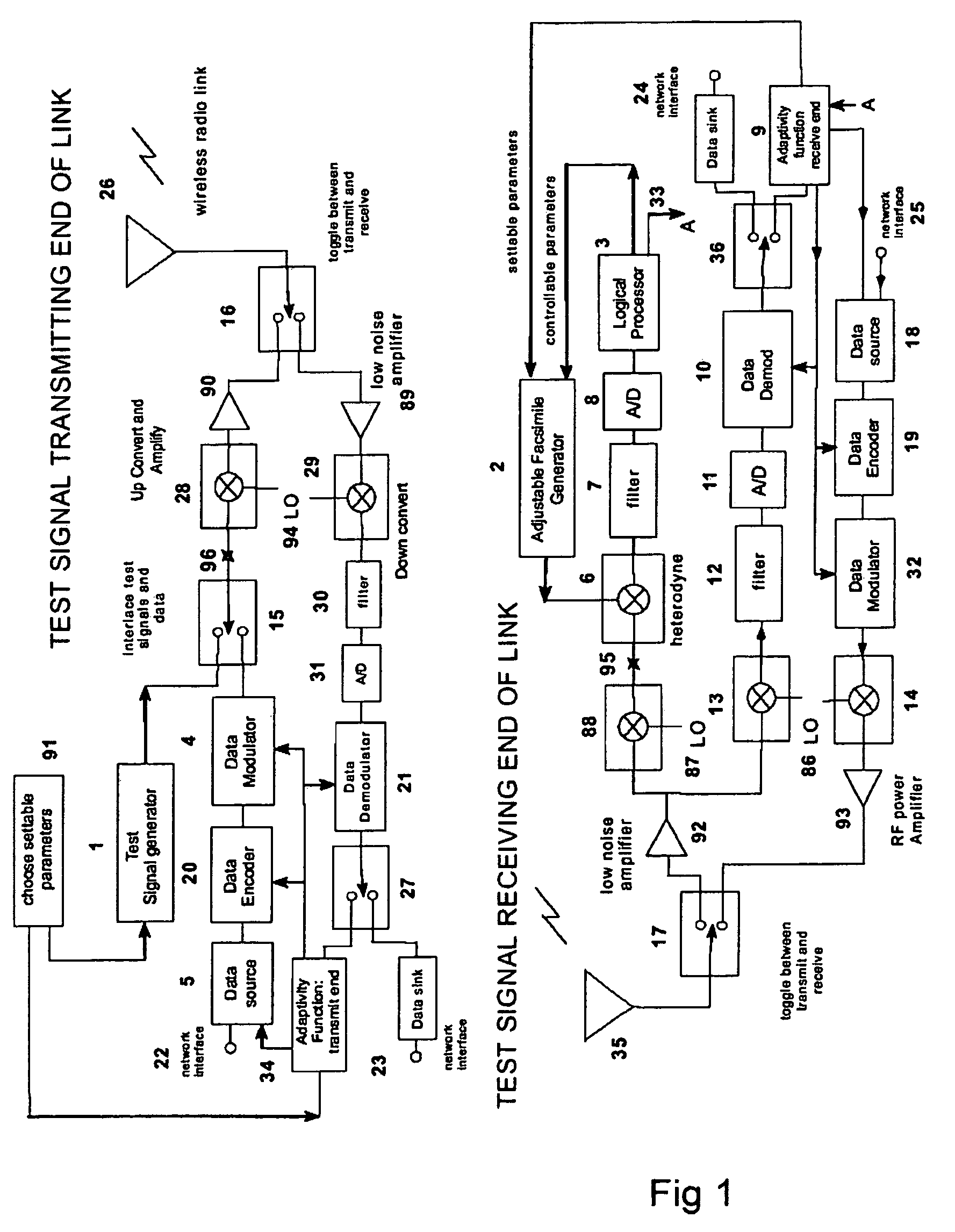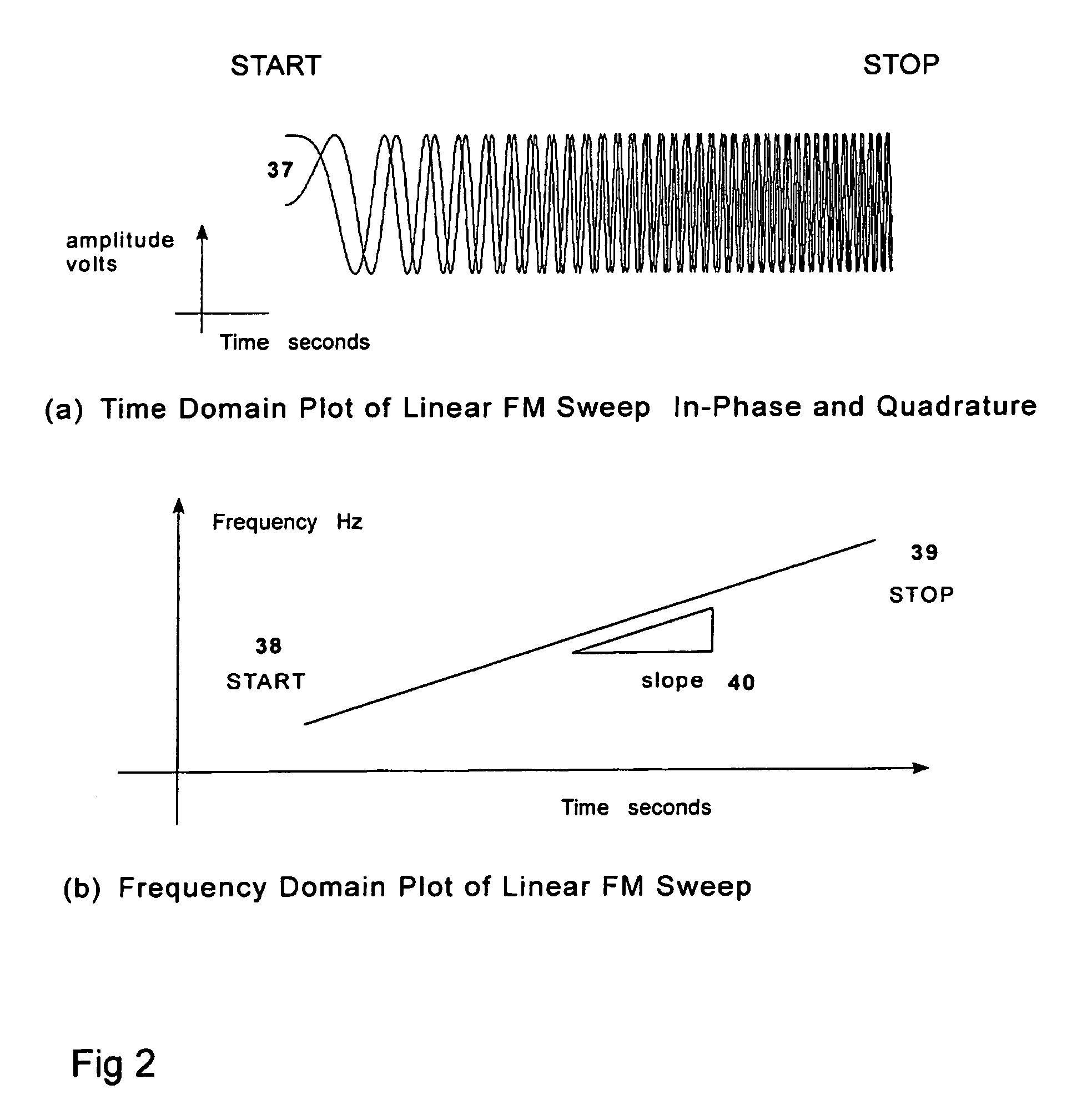Channel estimation applique for wireless communications
a wireless communication and channel estimation technology, applied in the field of wireless communication channels, can solve the problems of difficult to get around the problem of using cables to connect to a conventional vna, and achieve the effect of raising the overall efficiency, equilibrium and quality of servi
- Summary
- Abstract
- Description
- Claims
- Application Information
AI Technical Summary
Problems solved by technology
Method used
Image
Examples
Embodiment Construction
1. Preferred Embodiment
[0126]In this description, the preferred embodiment uses test signals that are segments of linear FM sweep signals. Many combinations of such signals are possible. The nature and benefits of the invention are not dependent on the precise format and placement of linear FM sweep signals, so there may be many variations in how the sweep signals are interlaced with communications. Additional embodiments such as the use of CDMA test signals are also possible and will be described in section 5.
[0127]The underlying purpose and benefit of the invention is its ability to compute, distribute and make use of, a frequency transfer function for each individual link in a wireless network subject to fading channel conditions.
[0128]At the start of the procedure envisioned for any typical use of the invention, there is a two-step process called acquisition and tracking which is independently performed in each receiver while a transmitting station broadcasts test signals interl...
PUM
 Login to View More
Login to View More Abstract
Description
Claims
Application Information
 Login to View More
Login to View More - R&D
- Intellectual Property
- Life Sciences
- Materials
- Tech Scout
- Unparalleled Data Quality
- Higher Quality Content
- 60% Fewer Hallucinations
Browse by: Latest US Patents, China's latest patents, Technical Efficacy Thesaurus, Application Domain, Technology Topic, Popular Technical Reports.
© 2025 PatSnap. All rights reserved.Legal|Privacy policy|Modern Slavery Act Transparency Statement|Sitemap|About US| Contact US: help@patsnap.com



